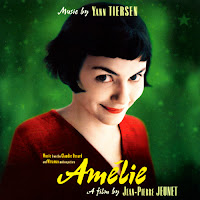Manchurian Melodrama*

My daughter recently returned from a study trip to Shanghai. In honour of her return, we sat and ate Pocky and watched the Hong Kong wartime and martial arts drama 'Ip Man' (2008).
While the historical accuracy of the nationalistic narrative, set in Foshan under Japanese occupation, was obviously complete bollocks, the martial arts sequences and choreography were supurb and I enjoyed it all hugely.
At the same time, I'd been absorbed in 'What Happens Next: A History of American Screenwriting' by Marc Norman, and a comment he makes early in the book about the popularity of melodrama as a dramatic form in the 19th Century popped into my head. Here surely, I thought, is pure melodrama.
The dominant theatrical narrative form at midcentury - the one everyone enjoyed rather than admired - was melodrama. No longer the inner torments of giants from Shakespeare or Goethe, not even the brittle one-set comedies of Sheridan - the zeitgeist had taken a lurch and moved on. Melodrama, at its simplest, was high conflict resolved by fierce confrontation. ... It was fundamentally about justice. No longer the ambiguities of a Macbeth or a Faust; with melodrama, the dark angel on one shoulder and the white on the other of internal conflict were exteranlized into hero and villain, white hat and black. ... Melodrama, as it evolved on the English and American stage in the mid-1800s, was not about aspects of character or inventions of narrative - it was about action; action was its given, and from that action, the pleasure of tension.
These comments intrigue me, because I've been taxed by the vagueness of my understanding of this still-common term 'melodramatic'. Here is as good and clear a definition as I've ever read, "high conflict resolved by fierce confrontation" with dramatic tension founded in action rather than character.
By that definition, this movie was completely melodramatic - no shame in that of course, most action movies by that measure are utterly of a piece with 19th Century melodrama as Norman depicts it, even down to an emphasis on the mechanics of the spectacle (CGI, 3D, etc). Many a theatre company bankrupted itself trying to provide ever more astonishing spectacle and realistic action for the theatre-going public in the 1800s.
'Ip Man' is a melodrama in this 19th Century sense because the drama is founded in action, while ambiguity is avoided. Tension is created and released after a dramatic situation is created - Ip Man, a wealthy family man who has devoted his time and energy to perfecting his martial arts, is confronted with several choices after the Japanese invade and enslave his community. The tension is created over the question of action: what will he do? There is an 'arc', a transformation, but it is only subtley registered and not dwelt upon; what sort of choices will the hero take and therefore, what sort of a man will he become? It is melodramatic because there is never any question about the outcome; his action is inevitable because he has no real conflict, nothing to lose. We know what he will do as soon as the situation becomes clear.
Similarly, the Japanese characters - to the extend that you can call them 'characters' - are presented without ambiguity; there are simply shades of evil. One is simply a stupid sadist while the other is a less stupid sadist.
This prompted a question for further research. Every Chinese film I've ever seen - and I am a long way from an expert - has been a melodrama in this 19th Century sense to a greater or lesser degree. Does China have another dramatic tradition that I've missed?
An equivalent comparision that occurs me would be India, a similarly developing country with a huge film industry. But while Bollywood's products are certainly melodramas, there is always Satyajit Ray, so at least in India's case the answer is a firm no. What about China?
(* Yes I know... A bit geographically imprecise but you can't go past alliteration in a headline.)

























.jpg)




